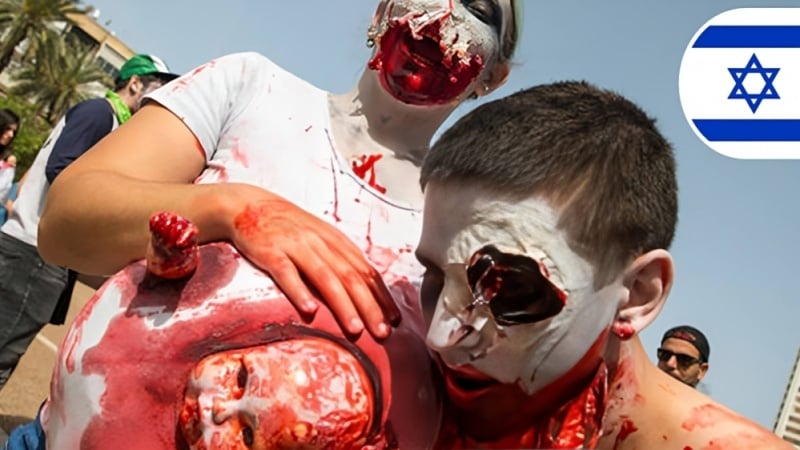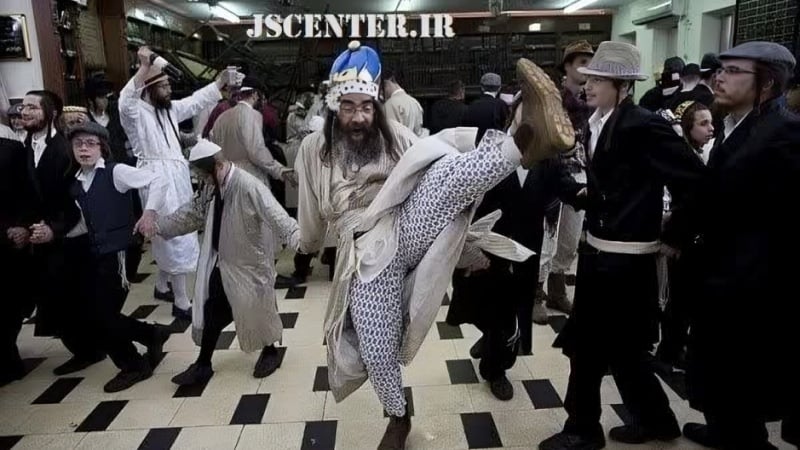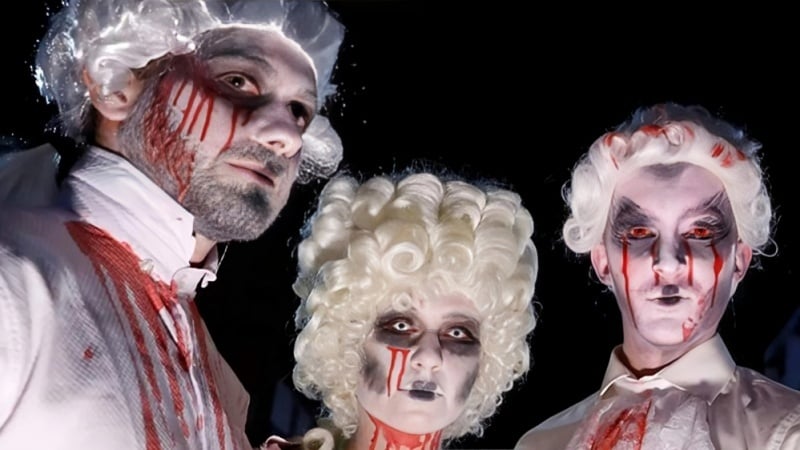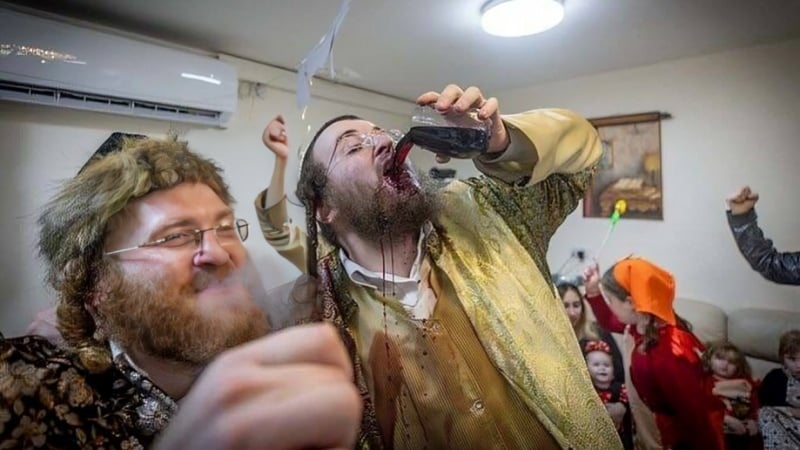Purim celebration;
The cannibalistic Purim festival: Zionist Jews rejoice in the massacre of ancient Iranians + Images
-

A few Israelis in a zombie parade during the hate-filled Jewish Purim celebration in the Occupied Territories
Pars Today - The Jewish Purim celebration is an effort that Jews, from centuries past to the present, have undertaken to preserve and revive the tradition of massacre and genocide in ancient Iran. Some consider it a Holocaust against Iranians.
The “Purim” festival is one of the ancient traditions of extremist Jews, which in recent decades, particularly after the establishment of the Zionist regime in the Occupied Territories, has taken on a different tone. Given the timing of this celebration, Pars Today takes a closer look at this festival.
Purim, a celebration of extremist Jews, is held in the Hebrew month of Adar. The word “Purim” derives from the Hebrew word “Pur,” meaning “lot,” and is observed not only in the Occupied Territories but also among extremist Jewish communities in America and Europe.
History
According to the Bible, during the reign of Xerxes I in Iran (October 486 – August 465 BCE), Jews were a religious minority in the country and constantly sought to infiltrate the Persian king’s court.
Mordechai, the leader of the Jews in Iran at that time, eventually succeeded—through numerous schemes and by sending a Jewish girl to the court—in making her the queen of Iran.
With the arrival of Esther, a beautiful young Jewish girl, at the court, Mordechai easily executed his sinister plans by using Esther to seduce the king of Iran.
Haman, the king’s vizier, warned the king of Mordechai’s conspiracy, and the king ordered Mordechai’s execution by hanging. However, Esther, who had gained significant influence over the king, portrayed Haman as a traitor plotting to kill the king. As a result, Haman was hanged, along with his ten sons.
After the killing of Haman and his sons, Jewish immigrants residing in Iran, aiming to dominate parts of the country, carried out widespread massacres of Iranians in 127 different locations across Iran. In Jewish texts, including the Book of Esther, Jews admit to slaughtering 80,000 Iranians, though independent researchers estimate the number to be as high as 500,000.
Customs of the Iranian genocide celebration:
Even though more than 15 centuries have passed since this massacre, Jews continue to celebrate the genocide of Iranians by wearing costumes resembling the characters of the story and reenacting the roles of the criminals of this genocide.

One of the ceremonies performed during the Purim holiday is the “cannibal parade” in the territories occupied by Zionists. In this parade, they paint themselves as cannibals and carry artificial human body parts in their mouths as a symbol of vengeance and the slaughter of Iranians.

Drinking blood—or a blood-colored beverage—as a symbol of vengeance and bloodlust toward Iranians is among the customs of Jews on this day. Drinking wine to the point of madness and extreme intoxication is also a common tradition during this celebration.

Another ritual Jews perform on this day is the “burning of Haman.” They burn an effigy or monument of Haman, Xerxes’ chief minister, in a fire.
Additionally, Jews bake pastries called “Haman’s Ears” to celebrate the hanging of the Persian minister.

However, through their global media, Jews have managed to normalize this horrific and hate-spreading ceremony in Western countries, particularly by likening it to Halloween festivities.
Some critics argue that the modern form of Purim is reflected in the ongoing massacre of Palestinians, who are expelled from their cities and homes, targeted by Zionist soldiers, or forced to live under harsh siege conditions.
MG/ME


